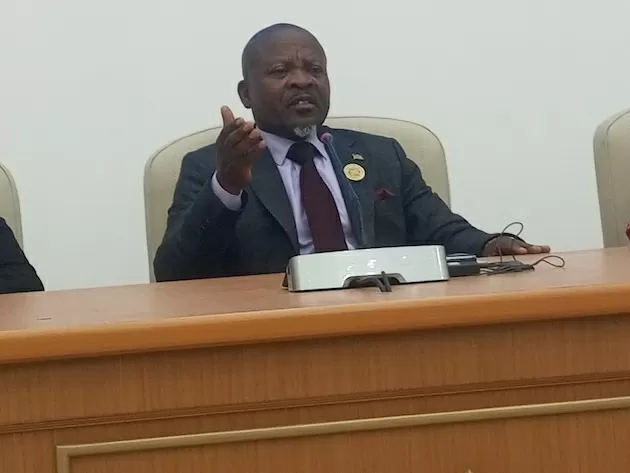The term ‘negotiation’ is often associated with diplomacy and conflict resolution. It is a process of discussion and compromise between two or more parties in order to reach a mutually beneficial agreement. However, in recent times, the concept of negotiation has been challenged by Malawi’s Vice President Michael Bizwick Usi, who believes that it must be understood in an ethical context.
At a high-level conference of Landlocked Developing Countries (LLDCs), Vice President Usi made a powerful statement that has resonated with many. He said, “When an arsonist comes and burns down my house and then asks me to negotiate so I can rebuild my house, that becomes the paradox.” These searing words cut through the diplomatic pleasantries and highlighted the harsh reality faced by many developing countries.
The LLDCs are a group of 32 countries that are landlocked and have no direct access to the sea. These countries face numerous challenges, including high transportation costs, limited market access, and vulnerability to external shocks. They are heavily dependent on their neighboring countries for trade and often have to negotiate for transit rights and access to ports.
However, Vice President Usi’s statement sheds light on the unethical practices that often take place during these negotiations. Many developed countries, who have the upper hand in these discussions, take advantage of the vulnerable position of LLDCs and impose unfair terms and conditions. This not only hinders the economic growth of these countries but also perpetuates the cycle of poverty and underdevelopment.
The Vice President’s words serve as a reminder that negotiation should not be seen as a tool to exploit the weak, but rather as a means to achieve a fair and just outcome for all parties involved. It is imperative that ethical considerations are taken into account during any negotiation process.
Ethics play a crucial role in shaping the outcome of negotiations. It is the moral compass that guides the behavior of individuals and nations. In the case of LLDCs, ethical negotiations would mean taking into account the socio-economic conditions of these countries and ensuring that any agreement reached is mutually beneficial.
Moreover, ethical negotiations also require transparency and accountability. All parties involved must be open and honest about their intentions and actions. This will help build trust and foster a positive relationship between the negotiating parties. It is only through ethical negotiations that long-term partnerships can be formed, leading to sustainable development and growth.
In addition, ethical negotiations also call for the involvement of all stakeholders. Often, negotiations are dominated by the interests of the powerful, while the voices of the marginalized are ignored. This leads to unequal and unjust agreements. It is essential that the voices of all stakeholders, including civil society organizations and local communities, are heard and taken into consideration during negotiations.
Furthermore, ethical negotiations also require a long-term perspective. It is not just about reaching an agreement for the present, but also about considering the future implications of the deal. This is especially important for LLDCs, as any agreement reached will have a significant impact on their economic and social development for years to come.
In conclusion, Vice President Usi’s statement serves as a wake-up call for all nations to re-evaluate their approach to negotiations. The term ‘negotiation’ must be understood in an ethical context, where fairness, transparency, and accountability are the guiding principles. It is only through ethical negotiations that we can build a more just and equitable world, where the vulnerable are not taken advantage of, but rather empowered to achieve their full potential. Let us heed the Vice President’s words and strive for ethical negotiations in all aspects of our lives.



